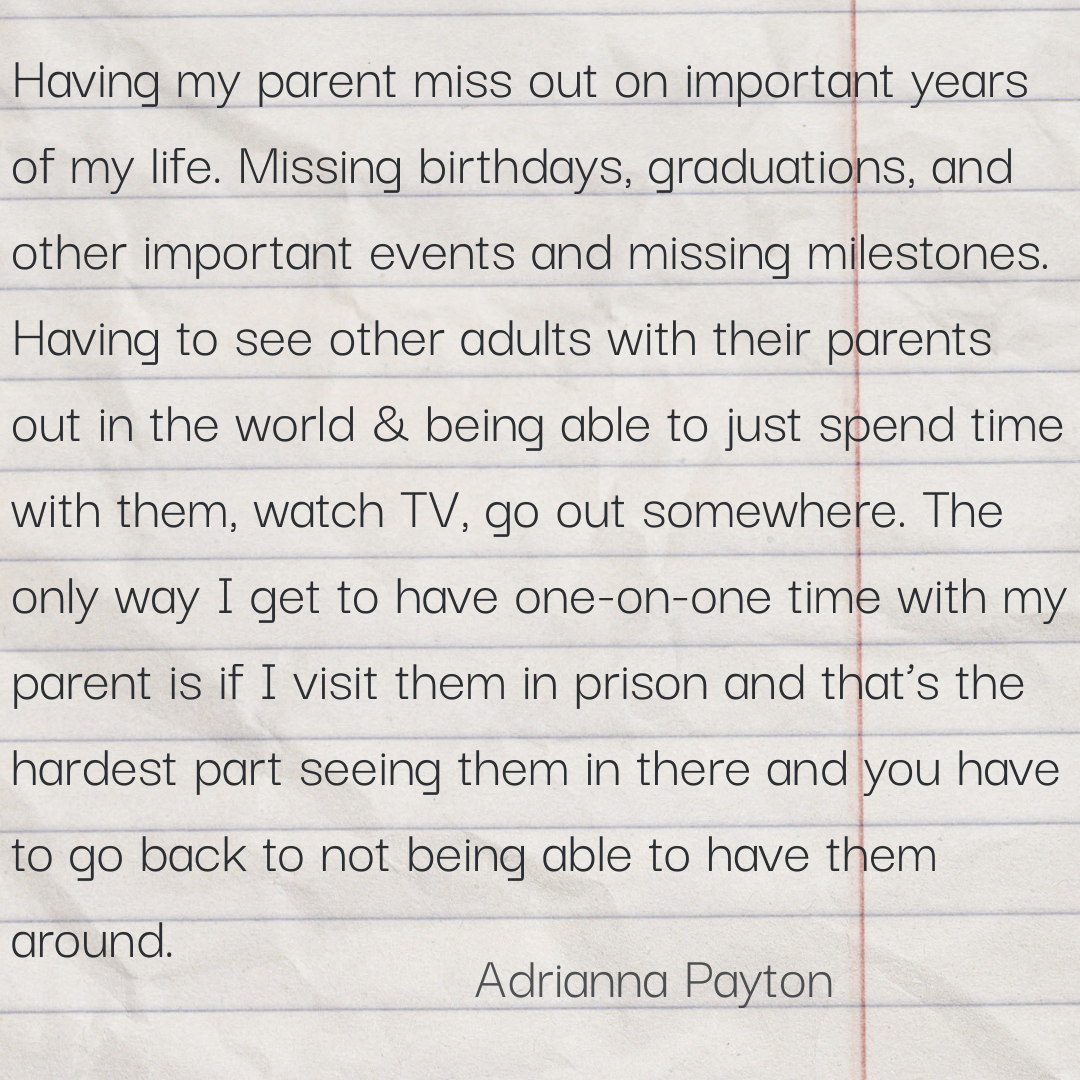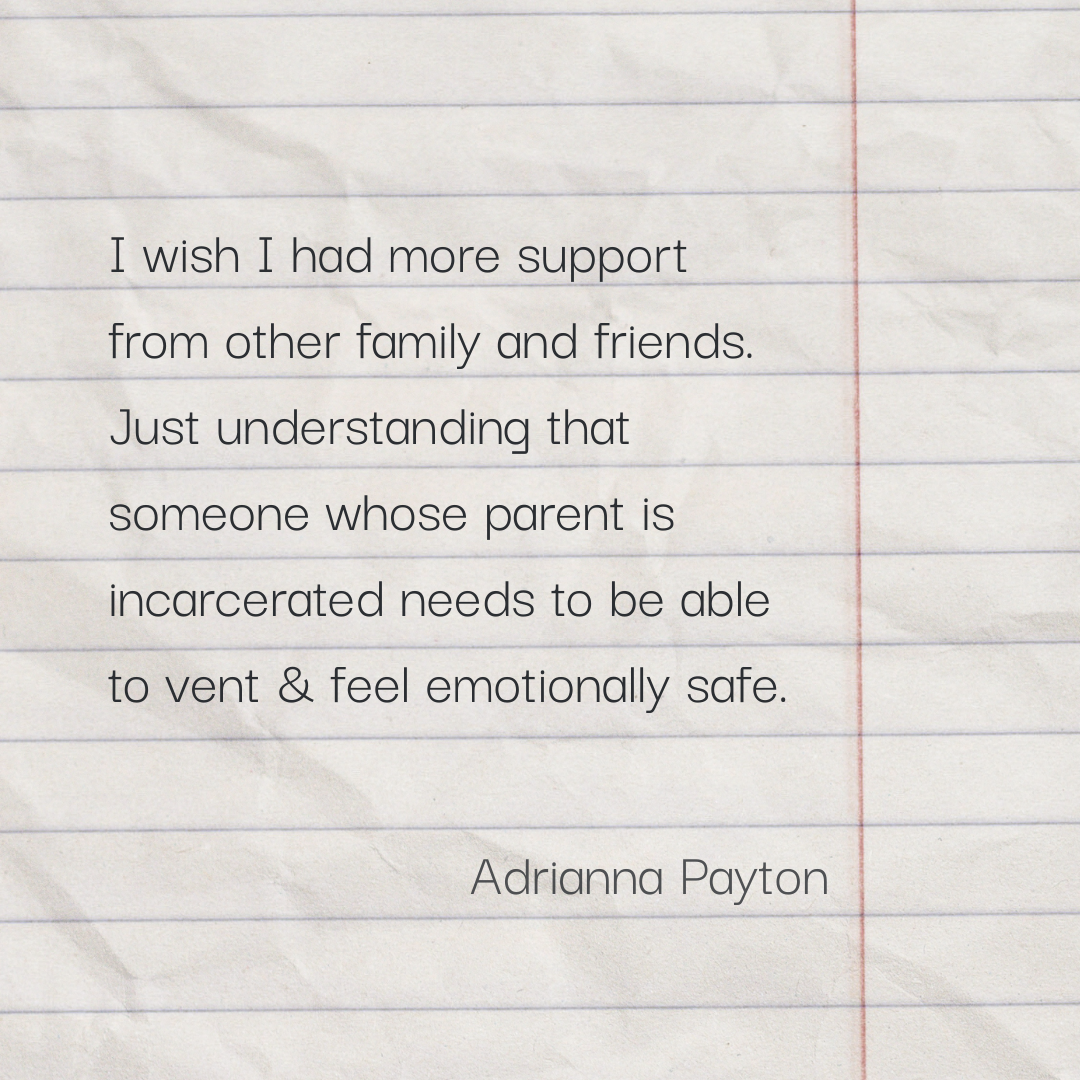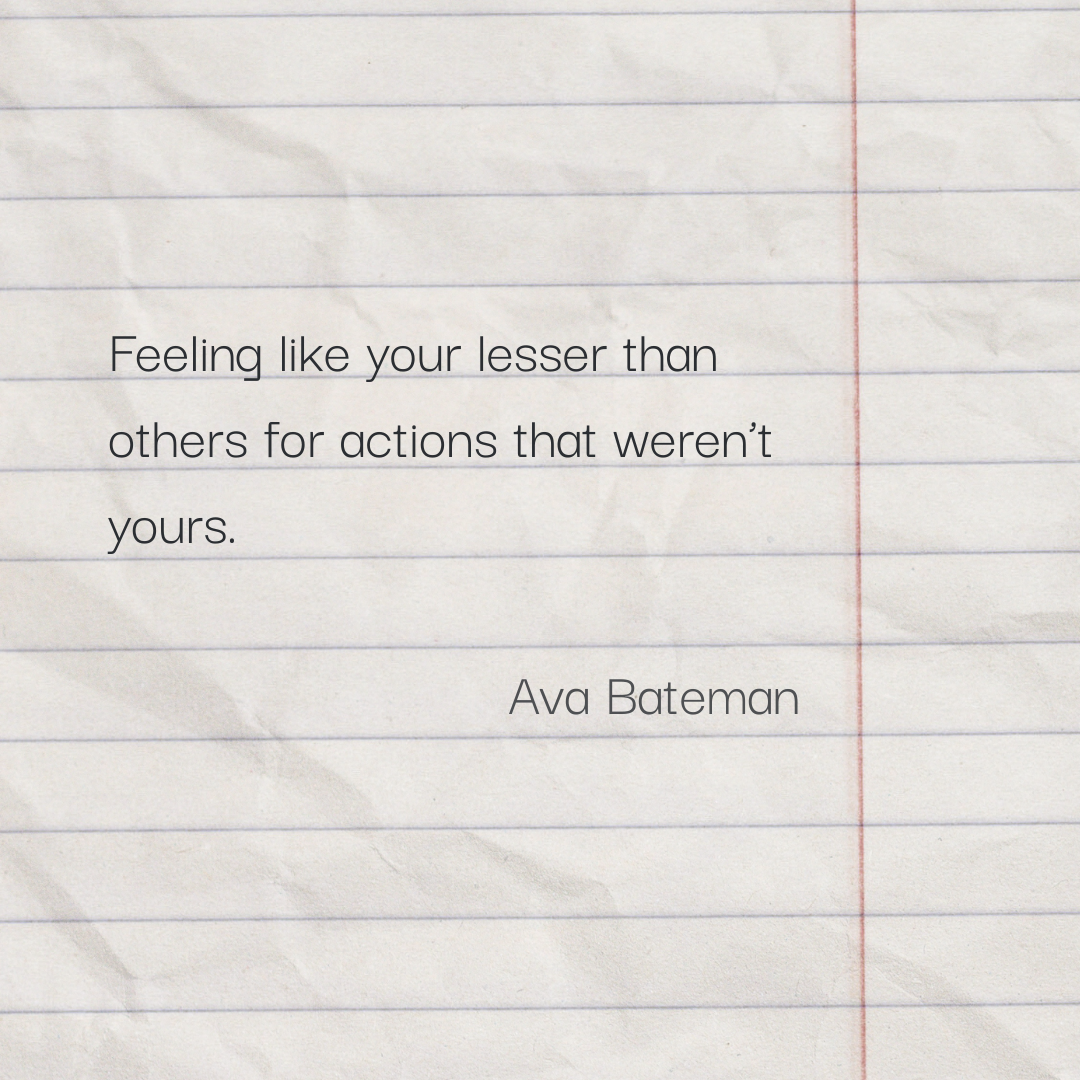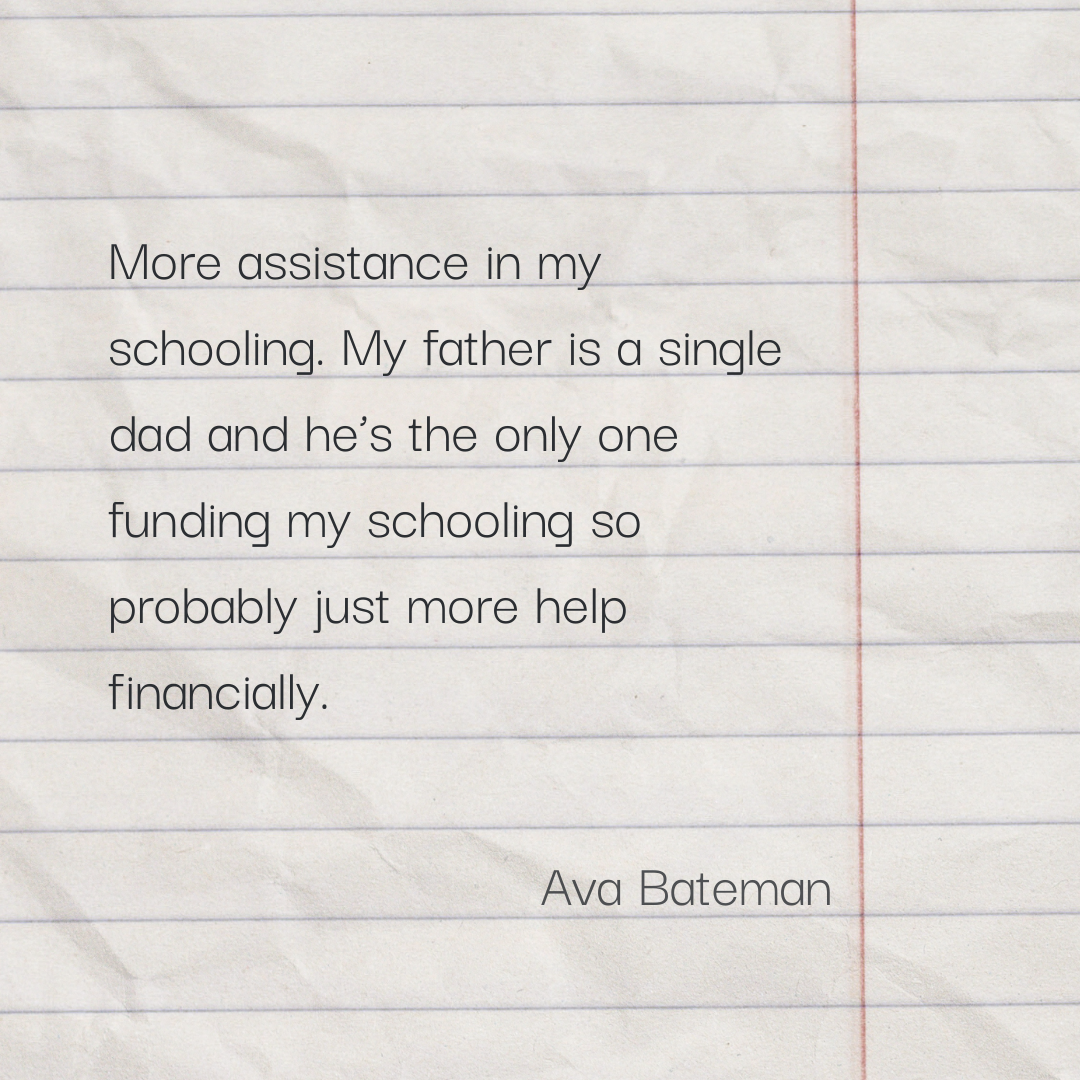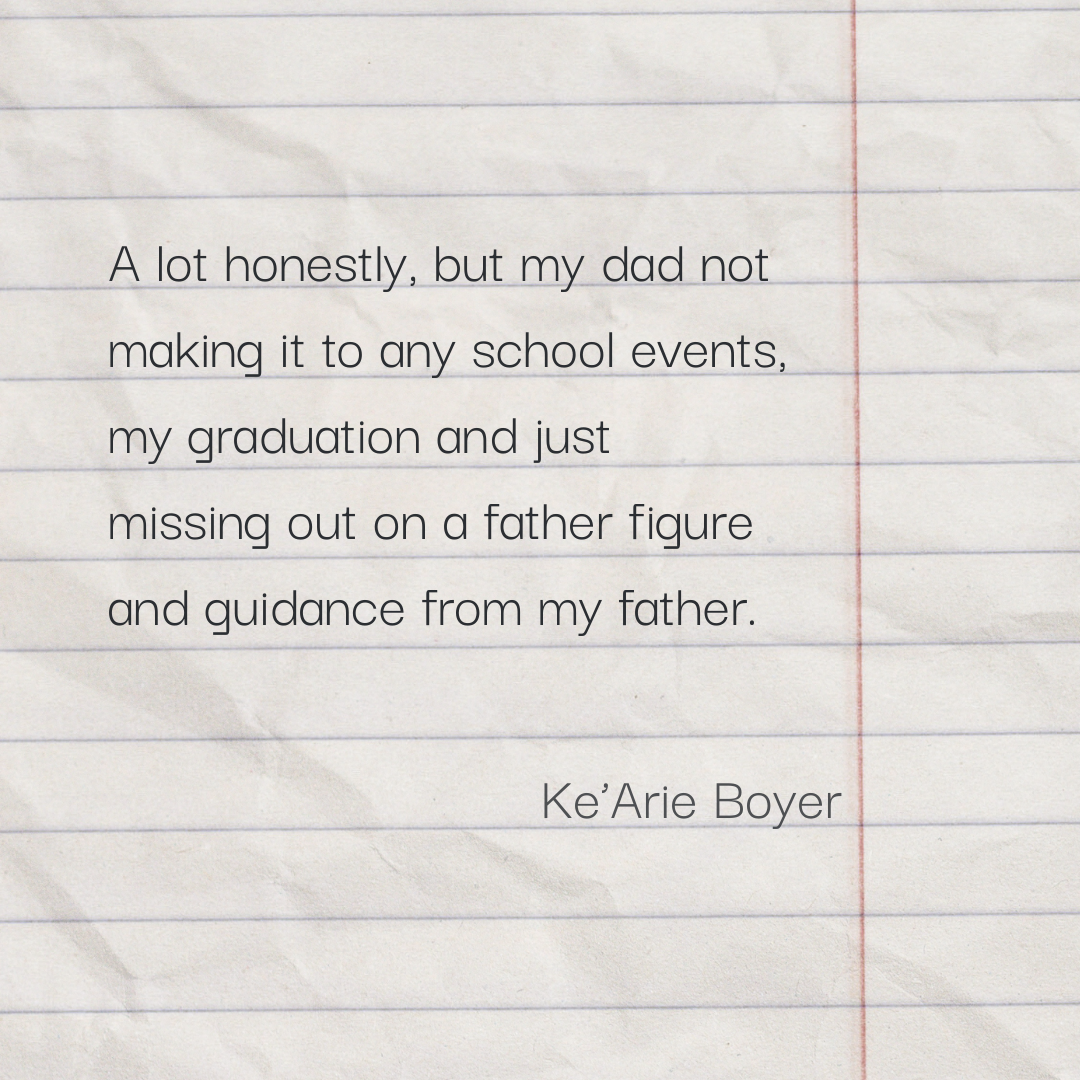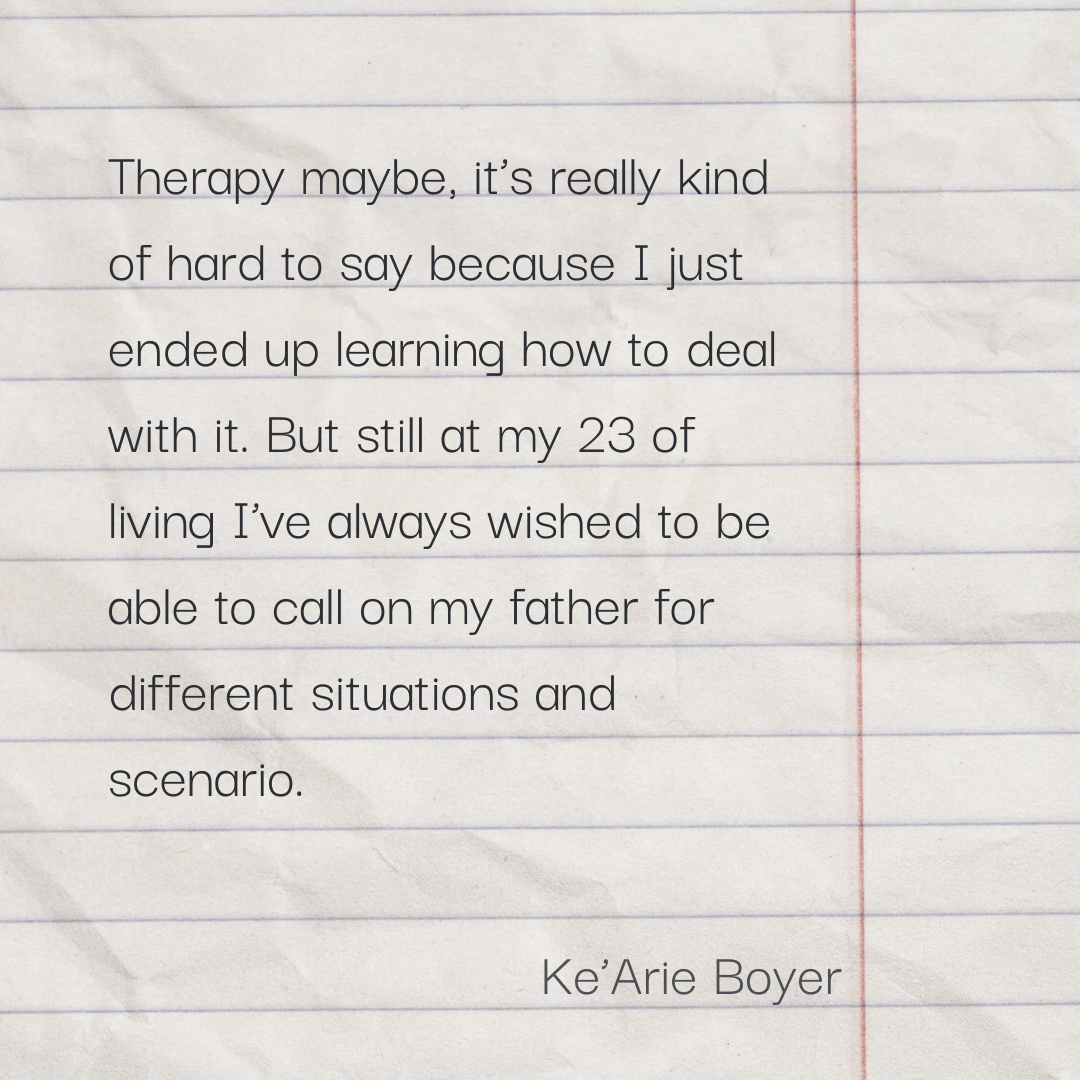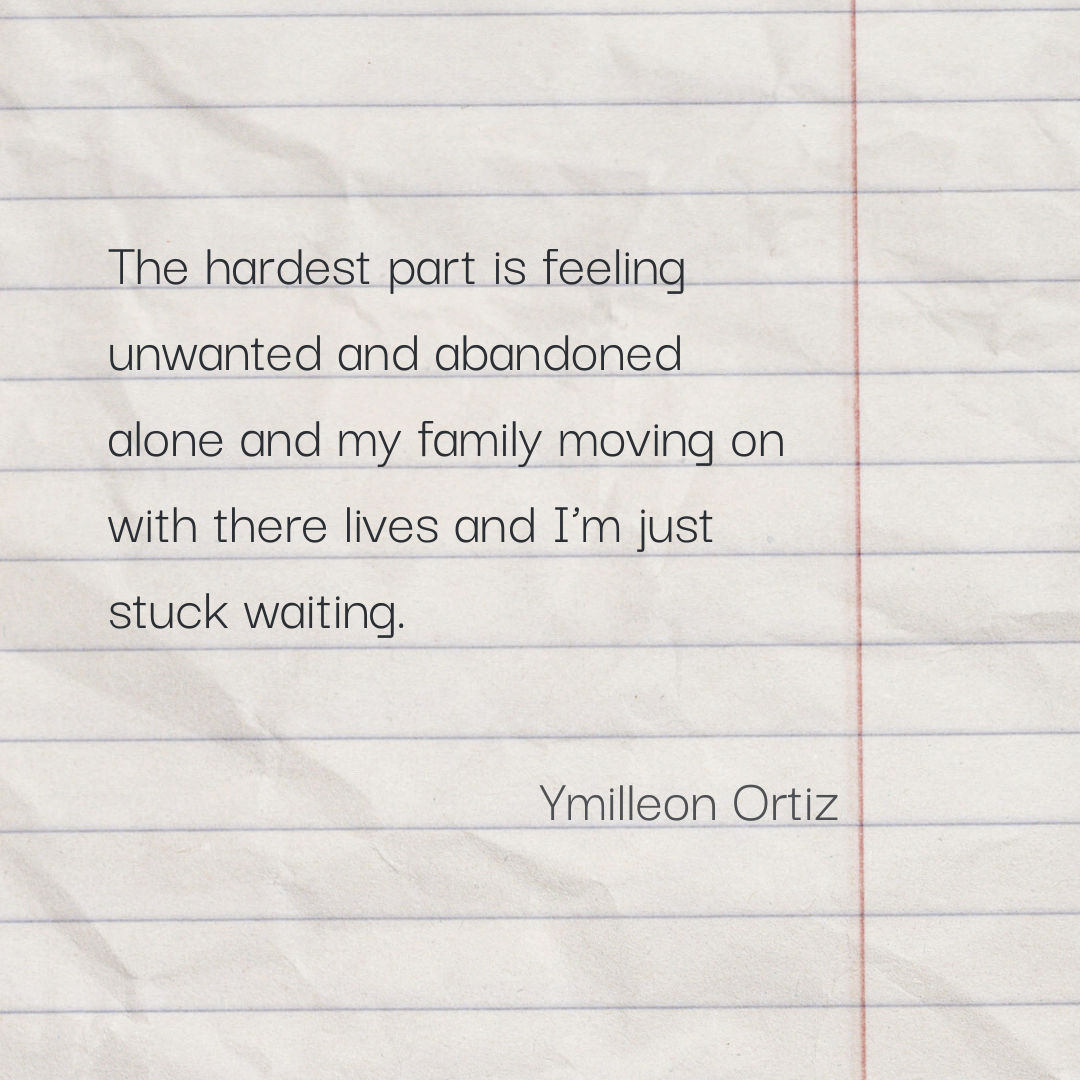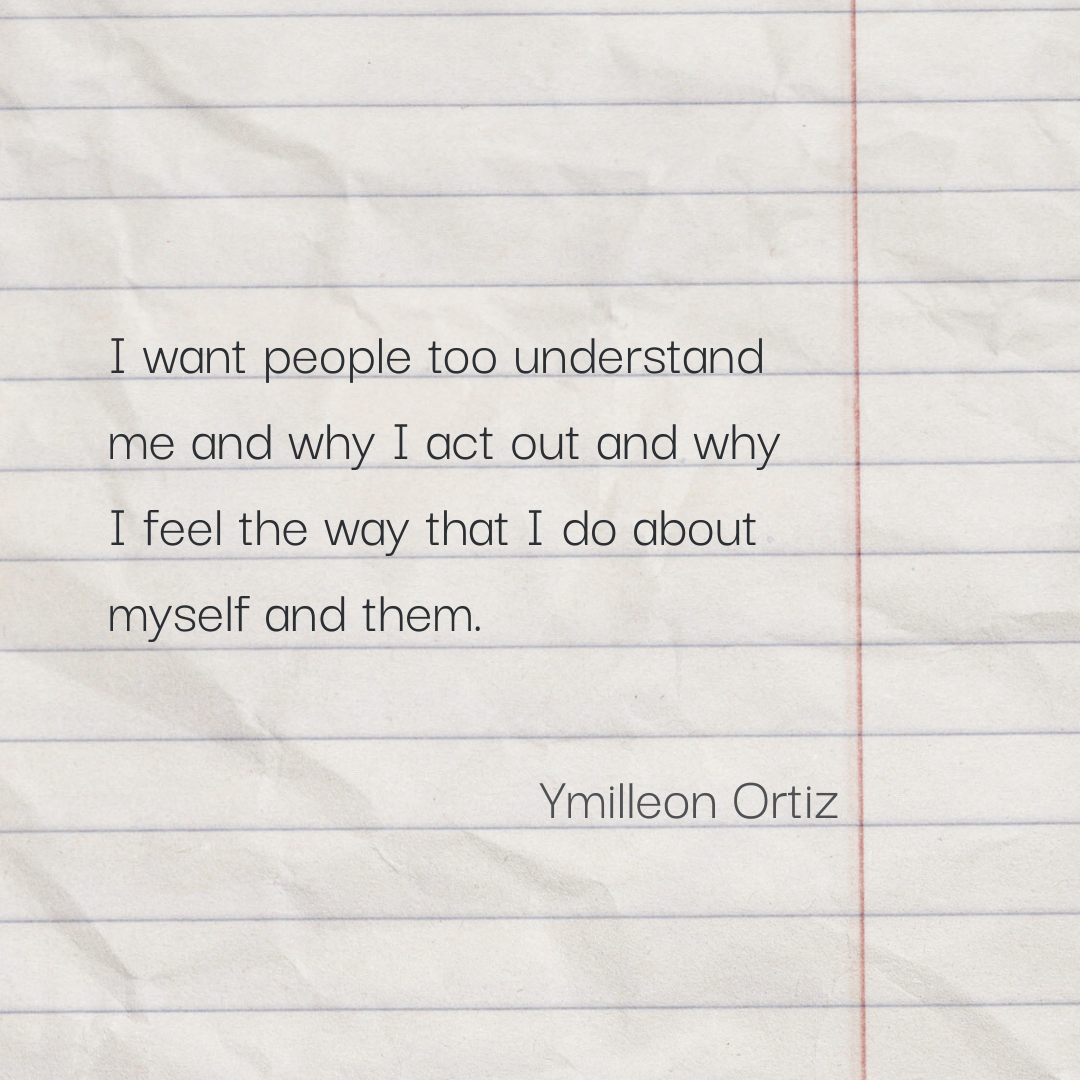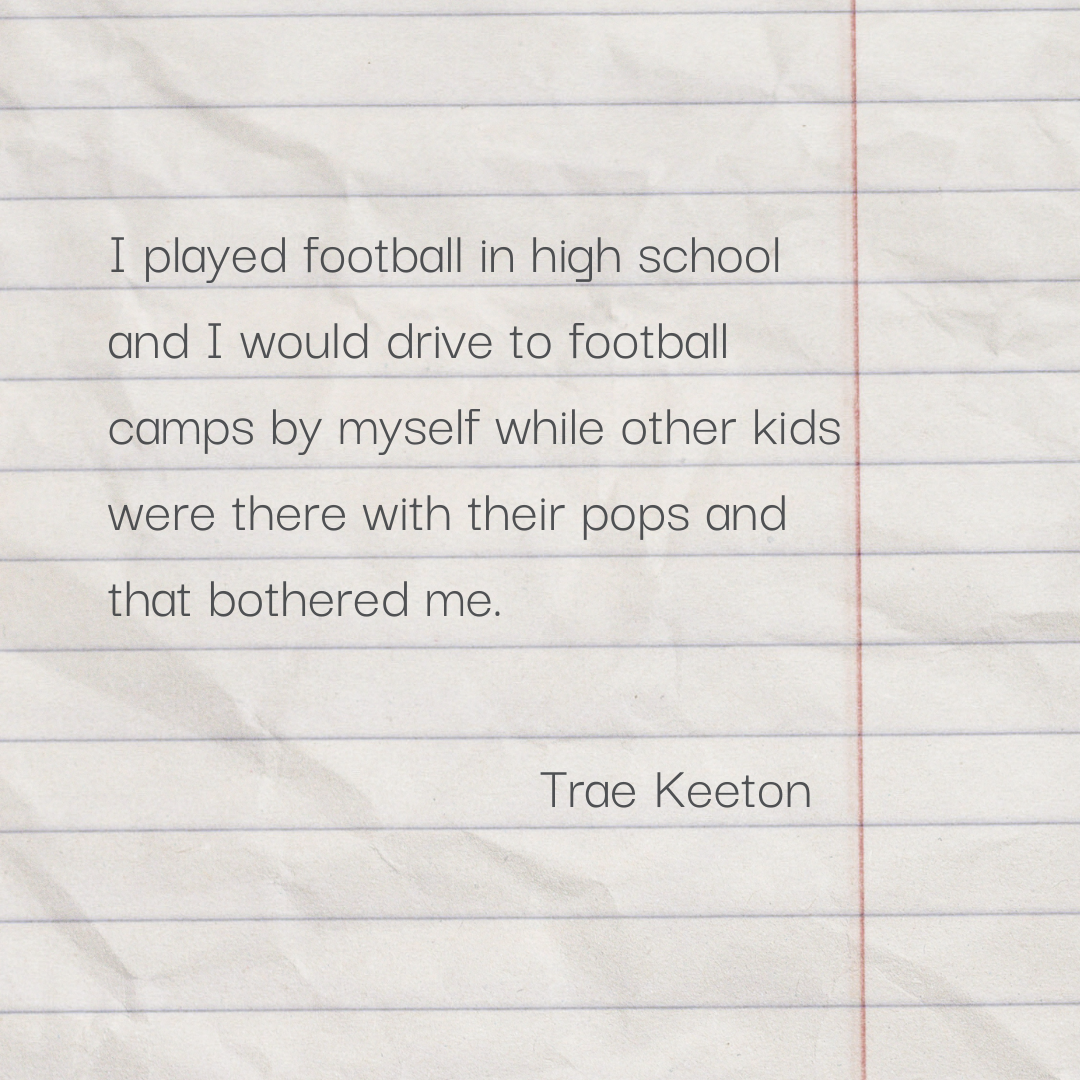Part Four — Through their eyes
Feel free to follow along with the transcript provided below.
BRIANNA RIEUX, HOST:
Hi, I’m Brianna Rieux, and welcome back to Time Served: The Children of Parents Behind Bars. We’ve talking about the obstacles that come with having a parent in custody. In this episode, we’ll focus on lessons passed down through generations. How can parents who have been through the system try to break the cycle for their kids? We’ll explore what drives the parents to do better, and how those efforts can shape a new path for their kids' future.
(SOUNDBITE OF MUSIC)
BRIANNA RIEUX: Hi, I’m Brianna Rieux and welcome back to Time Served: The Children of Parents Behind Bars. In our last episode we talked about how parents who have been through the system are working to change their story and give their kids a better future.
In this episode we’re hearing directly from the children. We’ll explore what it’s really like to grow up with a parent in prison. The confusion, the loss, the need to grow up fast. Each of these stories are different but they all show how deep the impact of incarceration can be.
(SOUNDBITE OF MUSIC)
BRIANNA RIEUX: I’ve always pushed myself to do my absolute best in everything I did. But there were times when it felt like I had to work harder than most. I started working at sixteen to help support my family, and from there, I had to navigate a lot of obstacles on my own to pursue a higher education.
It wasn’t easy. Especially when there wasn’t anyone to show me exactly how to do it. While my mom, grandparents, and dad did the best they could to support me, things like college applications and financial planning were all new to me. I had to figure those out on my own.
It’s been a constant cycle of trial and error. And I’m still learning.
When a parent is incarcerated, it affects every part of a child’s life. Whether it’s their school performance, emotional well-being, or even their family’s financial situation. These challenges can be overwhelming, but it’s important to understand that each child’s experience is unique.
What drives them to break the cycle is often deeply personal, shaped by their own experiences, struggles, and the hope they have for a better future.
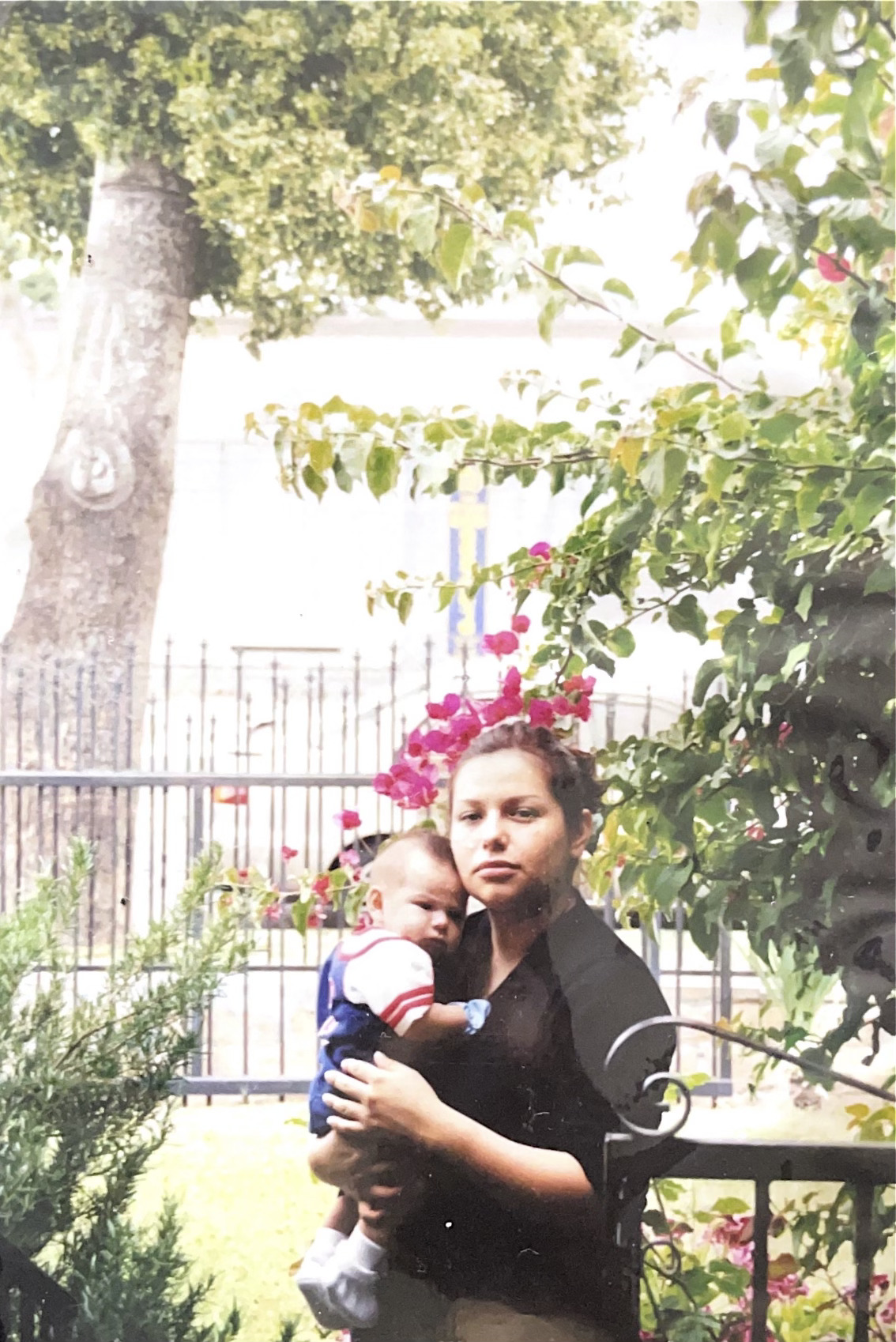
Baby Brandon with his mother. Courtesy of Brandon Marroquín.
Brandon Marroquin, who’s now 24, grew up in an immigrant family, constantly facing financial struggles and instability. He was constantly changing schools, entering new environments, but always sticking close to his mom and following her wherever life took them. During this time Brandon learned what it meant to keep going, no matter what life threw at him.
With two parents who were in and out of jail and seeing firsthand how addiction and incarceration can take over someone's life, Brandon knew early on that he did not want that for himself. Everything changed when his mom passed away due to an overdose when he was just twenty one years old. That moment hit him hard and made him realize just how fragile life can be. Losing his mom, who had been his best friend, to a life of addiction and instability changed his life forever. Witnessing that loss firsthand gave him the clarity to change the course of his own life.
BRANDON MARROQUIN: I grew up always kind of felt, like in myself, that you got to break out of that. And I feel like that is inclusive with everybody in my generation. It was hard because, like, seeing that first hand, and then also having to remind yourself, like you got to do good. You got to, you know, be the best version of yourself without falling far enough down to where you can't feel like you can get yourself back out of it.
BRIANNA RIEUX: Jada Hertel, 25, says her earliest memories are filled with abuse and neglect. Growing up, she often felt invisible and unheard, eventually regressing to the point where she stopped speaking and acting her age. Her parents separated when she was young, and after her father was taken into custody, her mother quickly moved on to another partner.
JADA HERTEL: My earliest memories are of abuse, and the way that my brain worked, it really suppressed a lot of the good memories. And then my dad quickly got incarcerated, my biological dad, so he was out of the picture for the first, probably about five years of my life. Through those years, I remember just lots of trauma, crying. I didn't understand where he went. It never really made that much sense to me, and it wasn't explained to me, like what really was happening, just I knew my dad wasn't there. One day he was there, and the next he wasn't. And that, I think, was a lot harder than people realized.
BRIANNA RIEUX: For Jada, this period of her life was incredibly difficult. The trauma and turmoil followed her throughout her childhood. She endured ongoing abuse and -witnessed domestic violence and animal cruelty in her home. While her mom was openly violent, her stepdad, while more passive on the surface, was hiding a darker side.
@jadas.justice We are finding our way.🦋 #csa #awareness #survivor #innerchild #healing #youngerself ♬ FOUND - Zach webb
Still Jada attached herself to her stepdad because he seemed to be the most stable thing in her life. Jada told me that she lived constantly in fear and was constantly walking on eggshells, never knowing when the next outburst from her mother would come. And as the oldest she said she felt responsible to keep her two younger siblings safe. Something she was unable to do for herself. The one person who seemed to be stable added to her trauma by sexually abusing her.
JADA HERTEL: It's impossible to live a life like that and not develop some sort of, you know, personality disorder, or, you know, traumatic stress disorder, literally, I feel like at least something comes out of it. You can recover from it, but you will have some sort of obstacle to overcome, mentally.
BRIANNA RIEUX: Cameron Walker, 31, grew up with four siblings and a single mom facing financial instability. He often felt like something was missing. Cameron surrounded himself with others in similar situations, hoping to find a sense of normalcy.
Having his father in prison often meant dealing with broken promises. One summer, Cameron was looking forward to spending time with his dad, but things changed in an instant. The next thing he knew, the police were on their way, and his dad was on the run.
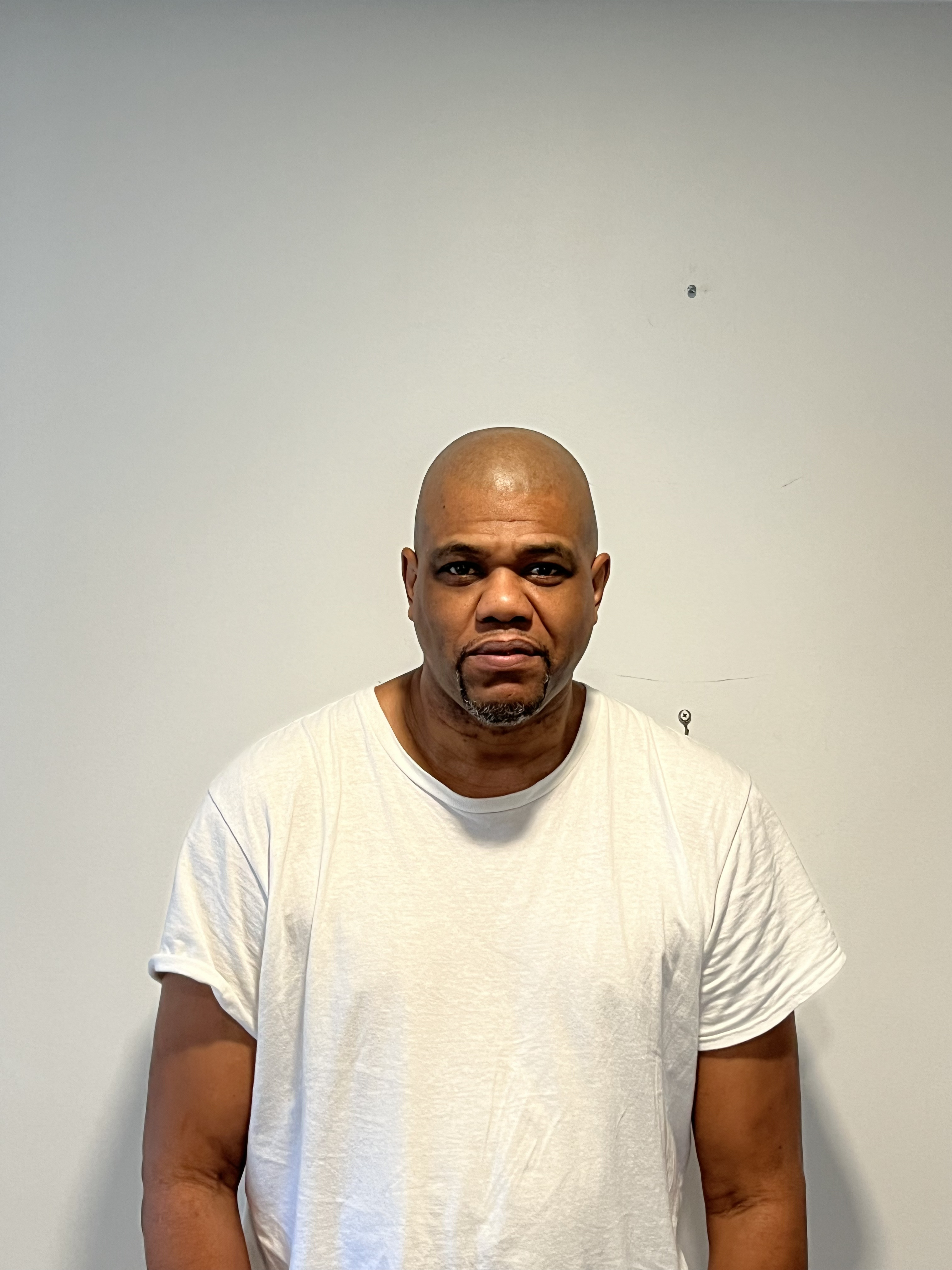
Photo of Cameron's father. Courtesy of Cameron Walker.
CAMERON WALKER: That really affected me. That was a time where it was really tough. And that was seventh grade summer. Eighth grade started shortly after this, and I instantly was suspended twice, and I was like a really good kid in middle school, like I was doing really well at this point. Elementary school, I was horrible. I acted out that definitely had to do with no father figure and no attention at home. So I think looking back, I can say it was easy to say I was looking for attention. I can specifically remember a second grade spelling test where I spelled every word on the spelling test backwards correctly, though, you know, like a telltale sign, like I'm smart. I don't want people to think I'm dumb, but I also want people to look at me.
BRIANNA RIEUX: For Tauheedah Shakur, it all started with her dad. He was just 13 when he was first incarcerated. But what’s often overlooked is that he wasn’t a bad kid. He was a kid who didn’t have support. He had to steal to survive because his family wasn’t there for him which then led him down the wrong path. She saw how the system failed her dad, and it gave her the awareness to choose a different path.
TAUHEEDAH SHAKUR: My dad did things that weren't cute, like, my dad did horrible, horrible, like, horrible, unspeakable things. My dad started going to jail at 13. Like my dad was, my dad was stealing because my grandma was out in the streets doing things, and I'm like, he had to steal to feed his little system.
BRIANNA RIEUX: For some kids, the absence of a parent doesn’t leave the same kind of hole. That was the case for 32-year-old Desiree Desarden. When her father went to prison, she didn’t feel a deep emotional loss—because her stepdad stepped up. He was there. He showed up. And for Desiree, that was enough. It wasn’t until her biological dad tried to come back into her life that she realized she didn’t really feel the need to reconnect. She had already found the love and support she needed from someone else.
DESIREE DESARDEN: From a young age, my mom had already knew my step dad so like, to me, like, that was kind of my dad. I didn't feel like I needed to make the re-bonding. I just feel like so much time had gone by. Like, I don't, it's like meeting a new friend, like a new person. Like, it's either you you want to, you know, be friends with this person, or you meet them and you choose that you don't want to be with us, you know, be friends with this person.
BRIANNA RIEUX: Desiree’s story shows that reconnecting isn’t always possible. Sometimes the distance is just too deep. And for a lot of kids, healing comes from somewhere else. A mentor. A relative. Or even within themselves.
Insights from Individuals Affected by Parental Incarceration
The impact of parental incarceration is different for everyone. For some, others step in to offer the love and support their missing. For others, the absence of a parent leaves a deeper wound, filled with significant trauma making healing a longer journey. No matter the path, what stands out is the determination to move forward and overcome our challenges.
(SOUNDBITE OF MUSIC)
BRIANNA RIEUX: That was part four of Time Served: The Children of Parents Behind Bars. Next time, we’ll shift the focus to see how they are breaking the cycle and creating a better future for themselves. Thank you for listening, I’m Brianna Rieux.
(SOUNDBITE OF MUSIC)
